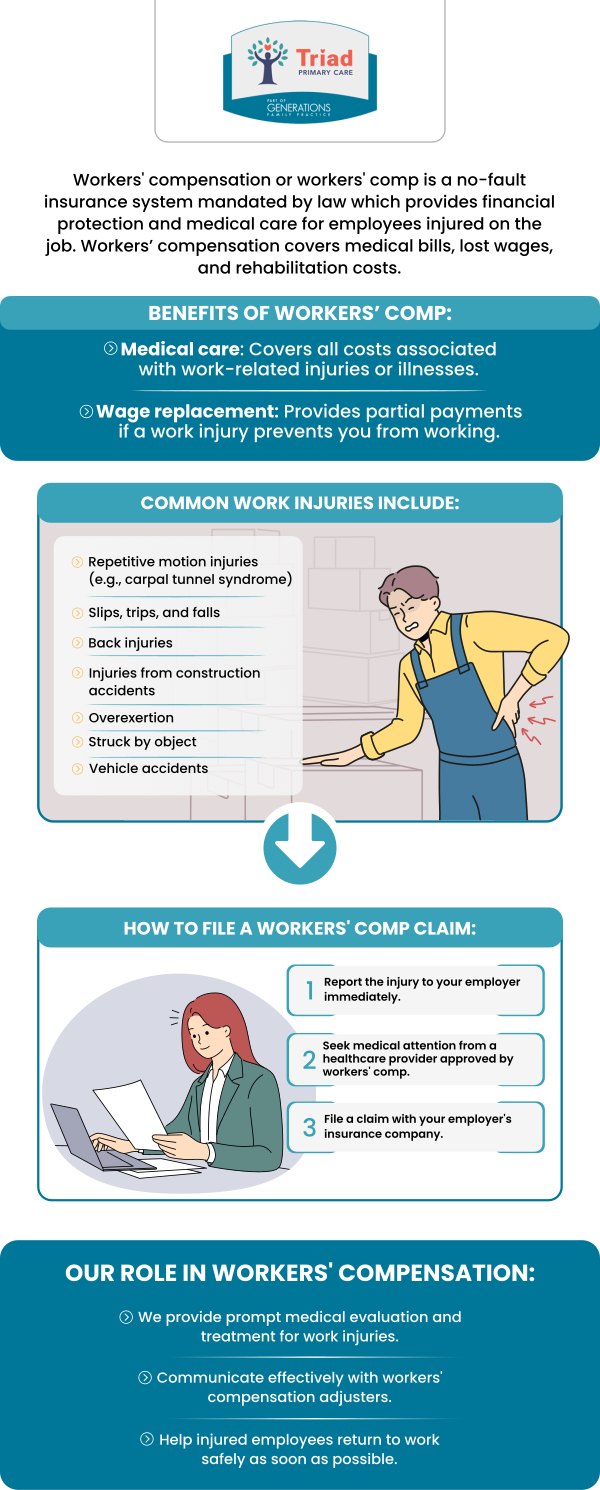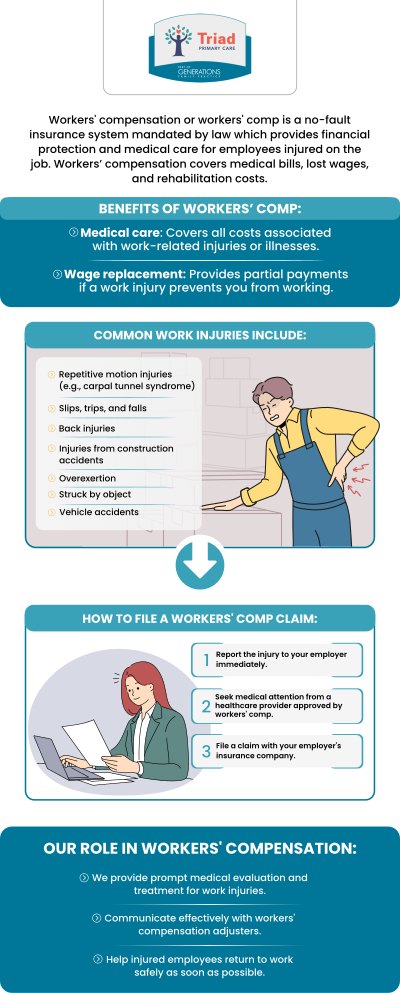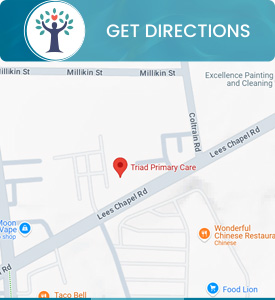What to Expect During Your Workers’ Compensation Exam
During your workers’ compensation exam, you can expect a thorough assessment of your condition, including a detailed review of your medical history and any work-related injuries. We offers comprehensive workers’ compensation exams at Triad Primary Care to ensure your needs are met. Our team is dedicated to providing the proper documentation and support for your case. For more information, contact us or book an appointment online. We are conveniently located at 1309 Lees Chapel Rd., Greensboro, NC 27455.


Workers’ compensation provides critical benefits to people injured on the job, replacing lost wages and covering the costs of medical care to help employees recover as quickly as possible. But before being approved for workers’ compensation, you need to have a special physical exam to document your injuries, assess their severity, and determine your course of care.
At Triad Primary Care, our team offers workplace compensation exams, also called independent medical exams (IMEs), to help women and men get the compensation and care they need. Here, learn what these exams include and how to prepare for your exam.
Getting ready for your exam
The workers’ compensation claim process follows specific rules that must be followed in a timely manner. Each state has a different process to follow when claiming workers’ compensation benefits. You can find the timeline and process on the North Carolina workers’ compensation website.
Before your workers’ compensation exam, gather all your notes and records about your accident or injury, including records of how the accident happened, any symptoms you’ve experienced, and any other medical treatments you’ve received, including records of emergency room visits.
You should also be ready to describe how your injury has affected your ability to do your job and perform any other regular activities of living. If you have any documentation from your employer or your workplace workers’ compensation representative, bring that too, along with a copy of any forms that need to be filled out by your doctor.
Getting ready for your exam ahead of time ensures your claim proceeds as quickly as possible while preventing missteps that could result in your claim being delayed or denied.
Medical history and physical exam
Before performing your physical exam and evaluation, your provider reviews your personal and family medical history to look for health issues that could affect your treatment or be affected by your injury. They’ll also ask about prior injuries that could be causing symptoms. Be ready to provide as much detail as possible without exaggeration.
Next, they perform a physical exam using assessments tailored to your injury and your symptoms. This exam helps determine the type and extent of your injuries and their impact on your strength, movement, flexibility, and other factors that could have an impact on your workplace duties or your everyday activities. Depending on your injury, we may also order lab tests or diagnostic imaging.
Paperwork and findings
During and after your exam, your provider fills out any paperwork required for your claim. In most cases, that involves detailing any findings and providing recommendations for your treatment.
It’s important to note that not all doctors can perform workers’ compensation exams. Our doctors are approved to provide those exams, so you can feel confident your exam will be tailored to the requirements of your workers’ compensation claim.
Scheduling your exam
Workers’ compensation insurance helps employees get the care and compensation they need to recover from workplace-related injuries and illnesses but to get the coverage you deserve, you need to schedule an exam as soon as possible.
To learn more about workers’ compensation exams or to schedule your independent medical exam, request an appointment online or over the phone with Triad Primary Care in Greensboro, North Carolina, today. We are conveniently located at 1309 Lees Chapel Rd., Greensboro, NC 27455. We serve patients from Greensboro NC, Browns Summit NC, McLeansville NC, Oak Ridge NC, Summerfield NC, and surrounding areas.
Check Out Our 5 Star Reviews



Additional Services You May Need
▸ Covid-19 Testing
▸ Medical Weight Loss
▸ Physical Exams
▸ Addiction Treatment
▸ Primary Care
▸ Lab Testing



